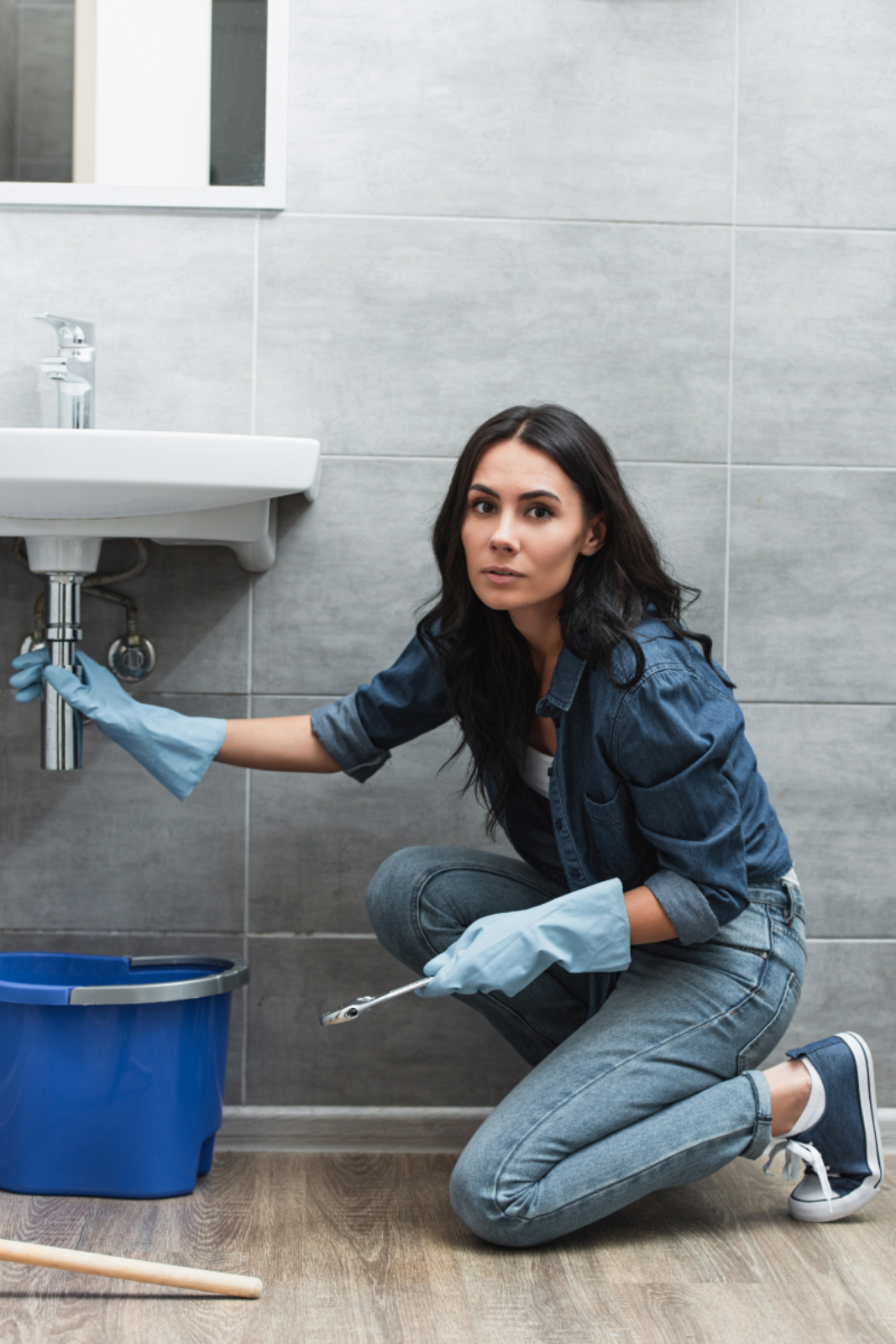FAQ- Plumbing Questions & Answers
Common signs of a water leak include unexplained increases in your water bill, damp or discolored spots on walls or ceilings, musty odors, and the sound of running water when all fixtures are turned off. For more accurate detection, professional plumbers use tools like electronic leak detectors and thermal imaging cameras.
In a plumbing emergency, such as a burst pipe or severe leak, immediately turn off the main water supply to prevent further damage. Next, call a licensed plumber for emergency services. It’s also helpful to know where the main water shutoff valve is located in your home.
Low water pressure can be caused by several factors, including clogged pipes, partially closed valves, or issues with the municipal water supply. Mineral buildup in older pipes or a malfunctioning pressure regulator can also contribute. A professional plumber can diagnose and resolve the underlying issue.
Tankless water heaters provide hot water on demand, which can save energy and reduce utility bills. They are more compact than traditional tank heaters and have a longer lifespan. However, the initial installation cost is higher, and they may require modifications to existing plumbing and gas lines.
It’s recommended to have your plumbing inspected annually to catch potential issues early. Regular inspections can prevent major problems, extend the lifespan of your plumbing system, and ensure everything is functioning efficiently.
To prevent clogs, avoid pouring grease, coffee grounds, and large food particles down the drain. Use drain screens to catch hair and other debris, and periodically flush your drains with hot water. Enzyme-based drain cleaners can also help maintain clear pipes without damaging them.
A sewer line inspection involves using a camera to examine the interior of your sewer pipes for blockages, cracks, or other issues. It’s recommended if you experience frequent drain clogs, slow drainage, or if you’re buying an older home. Regular inspections can prevent major sewer line problems.
A constantly running toilet is often caused by a faulty flapper valve, which may not seal properly. Other causes include an improperly adjusted float or a leaky fill valve. Replacing these parts usually resolves the issue. If you’re unsure, a plumber can quickly diagnose and fix the problem.
When choosing a plumber, look for licensed and insured professionals with good reviews and a solid reputation. Ask for recommendations from friends or family, and check online reviews. It’s also important to get written estimates and understand the pricing before any work begins.
There are several ways to make your plumbing more eco-friendly, including installing low-flow fixtures, fixing leaks promptly to conserve water, and using energy-efficient water heaters. Additionally, consider using environmentally-friendly products for drain cleaning and maintenance. Consulting with a plumber can provide you with specific recommendations tailored to your home.
Discolored water can be caused by various issues, such as rust in the pipes, sediment buildup, or issues with the municipal water supply. If you notice brown, yellow, or reddish water, it’s important to avoid using it for drinking or cooking until the issue is resolved. Contact a plumber to inspect your plumbing and determine the cause of the discoloration.
Yes, hard water, which contains high levels of calcium and magnesium, can cause scale buildup in pipes, water heaters, and appliances. This can lead to reduced efficiency, clogs, and premature wear and tear. Installing a water softener can help mitigate these issues by reducing the hardness of your water.
Best Plumbing Services in Orange County, CA



